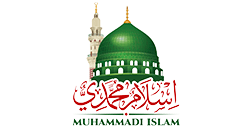Allah, the Most Exalted, sent numerous Prophets and Messengers at different times for the peace and salvation of mankind. Allah revealed divine messages to them and called upon people to the path of Hidayah (guidance) through them. Allah handed over the responsibility of (Hidayah) guidance to every prophet and messenger through a remarkable event. This task of guidance handed over to the prophets and messengers is called Nabuwat (prophethood). We often observe that every great endeavour in this world begins with an important event. Some of them find places on the pages of history. The Prophet Muhammad’s (PBUH) receiving of prophethood from Allah is such a remarkable event in the history of mankind. The Prophet Muhammad (PBUH) starts receiving messages from Allah on the 27 Ramadan of 610 BC, and thus he got Nabuwat (prophethood). These messages from Allah are the guidances for mankind. This event of the Prophet Muhammad’s (PBUH) receiving messages from Allah has been termed Nabuwat in history. He made the whole world enlightened with the light of his spiritual knowledge gained through meditation.
Nabuwat
Nabuwat is the duty or work of a Prophet. ‘Nabuwat’ is an Arabic word derived from another Arabic word, ‘Naba’ which means prophethood, the rank of a prophet, or conveying message. According to the dictionary of the Islamic Foundation, page 904, the word Nabuwat means news, message, information, or report. The English word for Nabuwat is Prophethood. In fact, the knowledge of Nabuwat is a part of the mystical world. The duty of Nabuwat is called Risalat (conveying message), and those who perform this duty are called prophets and messengers.
Nabuwat is a process by which one or more messages are revealed to the prophets and messengers, and through them, the messages are conveyed to people.
The Nabuwat of the Prophet Muhammad( PBUH)
The initiation of the process the prophets and messengers receive divine messages from Allah is called Nabuwat (prophethood). The Messenger of peace for mankind, greatest man of all times, Rahmatallil Alamin (Mercy for the worlds) Hazrat Muhammad (PBUH) earned the satisfaction of Allah through his virtuous deeds and many years of meditation and finally received prophethood at the age of forty. That is, the great duty of guidance Hazrat Muhammad (PBUH) performed to receive messages from Allah as well as to convey them to people is called Nabuwat.
The place Hazrat Muhammad (PBUH) was born was Mecca, one of the famous cities of the then-Arab peninsula. The time was the sixth century (570-632 AD). Hazrat Isa Ibn Mariam (As.), the previous Prophet of Islam, was born about 570 years before the birth of the Prophet Muhammad (PBUH). That is- there was no selected representative (prophets/messengers) of Allah for about 570 years in the world before the arrival of the Prophet Muhammad (PBUH). At that time, there was no idealistic leader or religious guidance in the whole Arab world. As a result of it, the Arab people of that time didn’t get any guidance or religious teaching from the prophets and messengers for quite a long time. That’s why, there was a kind of complete anarchy prevailing all over Arab. The Arab people were involved in various immoral activities. Such as burying the baby girls, tribal conflict, depriving women of their right to property, abusing slaves, drinking alcohol, gambling, adultery, paganism, and so many forms of sinful activities they were immersed in. That’s why that time of Arabia is called Aiyame Jaheliya or the age of ignorance in history. The Arab people were also known as barbaric nations at that age.
As a result of all these unruly and obscene activities, there was an extreme level of unrest prevailing all over Arab society. The Prophet (PBUH) thought if they always indulge in sinful acts, then how will they get salvation? One of the requirements to get salvation is peace. Firstly, they’ve to be brought under the shed of peace to lead them toward ultimate salvation. In these circumstances, he began to seek ways how to establish peace in family, society, and state. He always sought help from Allah, getting himself absorbed in deep contemplation. The deep contemplation by which the Prophet (PBUH) always thought about the ways to find peace and salvation for mankind is called Muraqabah or meditation.
Meditation in the Cave of Hira
The Prophet Muhammad (PBUH) was very fond of solitude in his youth. Gradually, he became more and more attracted to solitude. One of the requirements for meditation is seclusion. But there was no favorable atmosphere to meditate in Mecca. He couldn’t concentrate on meditation fully due to the chaotic atmosphere in Mecca. So, he chose the cave of Hira of Jabal al-Nour for meditation, a secluded place three kilometers from Mecca. The Prophet Muhammad (PBUH) passed every Ramadan for 25-40 years of his lifetime, meditating in the cave of Hira. Besides, whenever he had any free time, he went there to meditate. He kept dry food with himself during his stay in the cave of Hira. If the food kept with him finished, he would come back home to take food. Sometimes his wife, Hazrat Khadiza (Ra.), and his most trusted companion Hazrat Ali (Ra.), supplied him with foodstuff in the cave of Hira. In this way, long 15 years, from 595 AD to 610 AD, passed away.
The Signs of Nabuwat
The Prophet Muhammad (PBUH) always used to be absorbed in deep meditation in the cave of Hira. When he reached the age of forty, he would experience different mysteries from the unseen world in dreams and meditation. Sometimes, he became very worried about experiencing these things. Because whatever he saw in the dream became apparent to him like the light of the morning sun. Hazrat Ayesha (Ra.) reported, “The revelation of messages to the Prophet (PBUH) starts through a dream in sleep. Whatever he dreamt became manifested like the light of the morning sun. [Sahi Bukhari, Hadith:6982]
The Prophet Muhammad (PBUH) shared these experiences with his wife, Hazrat Khadiza(Ra.). If the Prophet( PBUH) became nervous, she would encourage him. A few days before the Prophet (PBUH) received prophethood, several important incidents had happened to him, which prepared him to receive the charge of prophethood. Sometimes, he witnessed that a divine figure appeared before him and said, “Yah Muhammad (PBUH)! Anta Rasullah”, meaning- Ya Rasullah (SAW)! You are the Messenger of Allah.” Having said this, the divine figure would disappear instantly. Sometimes the divine voice would say something more, which made the Prophet (PBUH) very nervous. Sometimes he moved away out of fear. When the Prophet (PBUH) shared these experiences with Hazrat Khadiza (Ra.), she could realize that the Prophet (PBUH) was going to have fulfillment in his spiritual practice soon. It is because she had enough knowledge of the holy Torah and Injil. The prophecies made in the holy Torah and Injil about the final prophet came true in the case of the Prophet Muhammad (PBUH). That’s why she would always encourage the Prophet (PBUH). Some say that the divine figure was Hazrat Zibrael (As.) (Angel carrying the message of Allah). In this way, the Prophet (PBUH) reached the age of forty.
Receiving Nabuwat (prophethood)
After fifteen long years of tireless meditation in the cave of Hira, that great moment finally arrives. It was the midnight of 27 Ramadan, 610 AD. Three quarters have already passed, and the fourth quarter has just started. There was utmost silence all around.
Hazrat Muhammad (PBUH) was absorbed in deep meditation. All of a sudden, he heard a voice calling him- Ya Muhammad!
He opened his eyes and saw the dark cave instantly became filled up with divine light, and an enlightened man was standing just before him. The Prophet (PBUH) was stunned and shuddered to see all these. He lost consciousness for a while. After some time the enlightened figure started talking to him.
The enlightened man said, “Please, read.”
The Prophet (PBUH) replied, “I’m not habituated to reading.”
Then, the enlightened man embraced the Prophet (PBUH).
And he said again, “Please, read.”
The Prophet (PBUH) replied again, “I’m not habituated to reading.”
The enlightened figure embraced the Prophet (PBUH) once again. This time the Prophet (PBUH) said, “What will I read?” Afterwards, the Prophet (PBUH) recited five verses from the holy Quran, which translate as-
Read, ‘O Prophet!’ in the name of your Lord who has created humans from a clinging clot. Read! And your Lord is the Most Generous, Who taught by the pen- taught humanity what they knew not. [Sura:Alak, verse:1-5]
Indeed, the Prophet Muhammad (PBUH) received Nabuwat (prophethood) as well as the important work to preach the messages of Tawhid (monotheism) through this event.
Western historian Caren Armstrong says in his book ‘Muhammad: A Biography of the Prophet’ about the prophethood of the Prophet Muhammad (PBUH)-In 610 AD, an Arab merchant had such an experience in the city of Mecca of Hijaj which later on turned the wheel of history of human civilization.
In the end, Receiving prophethood was one of the greatest events in the life of the Prophet Muhammad (PBUH). By this event, he was chosen as the final Prophet and Messenger of Allah and accomplished the great task of Hidayah (guidance) assigned to him for 23 long years.

